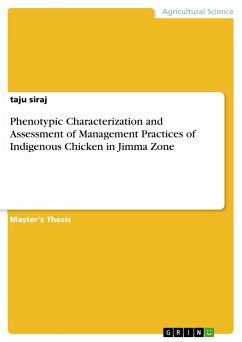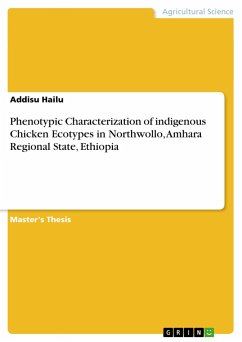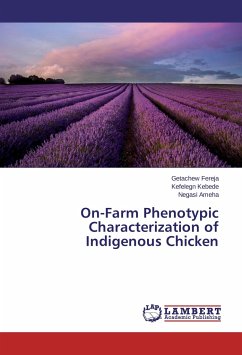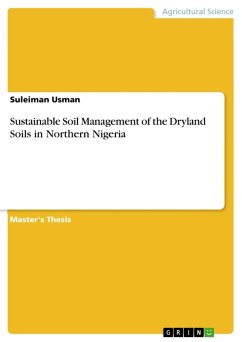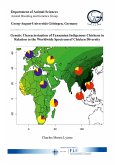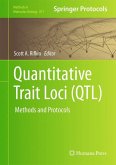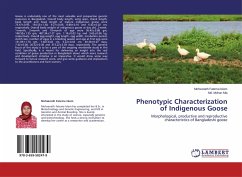Master's Thesis from the year 2017 in the subject Agrarian Studies, , language: English, abstract: The study was conducted in Jimma zone of three Agro-ecology in six-selected farmer's kebele starting from March to June 2017 with the aim to phenotypic ally characterize selected indigenous chicken, identify poultry management and breeding practices in three agro-ecologies of Jimma Zone. A survey was carried out on 180 randomly selected respondent as well as 555 heads of native chickens, (445 females and 105 males) for qualitative and quantitative trait measurements.In Ethiopia, the agricultural sector is a corner stone of the economic and social life of the people. The livestock sector in Ethiopia contributes 12% and 33% of the total and agricultural Gross Domestic Product (GDP), respectively, and provides livelihood for 65% of the population. The sector also accounts for 12-15% of the total export earnings. These livestock genetic resources are important or vital to development of the economic ,social and environmental of the one country. The diverse agro-ecology and agronomic practice prevailing in the country together with the huge population of livestock in general and poultry in particular, could be a promising attribute to boost up the sector and increase its contribution to the total agricultural output as well as to improve the living standards of the poor livestock keepers.Poultry production, as one segment of livestock production, has a peculiar privilege to contribute to the sector. This is mainly due to their small size and fast reproduction compared to most other livestock and its well fitness with the concept of small-scale agricultural development. Moreover, it goes eco-friendly and does not compete for scarce land rest.The majority of indigenous chickens in the tropics are maintained under village chicken production systems. These production systems are typically characterized by low input and low output systems, mainly in terms of egg and meat production. However, they also lay small sized eggs and grow slowly. Regardless of this low output, indigenous chickens in the tropics can survive and produce with irregular supplies of feed and water and with minimum health care. They are often part of 'balanced' farming systems, which have important roles in the rural household as a source of high quality animal protein and emergency cash income, and play a significant role in the socio-cultural life of the rural community

